Parveen Babi

Subscribe to read full article
This section is for paid subscribers only. Our subscription is only $37/- for one full year.
You get unlimited access to all paid section and features on the website with this subscription.
Not ready for a full subscription?
You can access this article for $2 , and have it saved to your account for one year.
- Born: 4 April, 1954 (Junagadh, Gujarat)
- Died: 20 January, 2005 (Mumbai)
- Primary Cinema: Hindi
- Parents: Jamal Bakhte Babi , Vali Mohammed Khan Babi
Beautiful, alluring, outspoken, Parveen Babi made history for being the first Indian to appear on the cover of Time magazine in July 1976, as the symbol of ‘Asia’s Frenetic Film Scene’. In the course of a decade in the industry during which she lit up the screen with her radiance, she had developed a new, modern image for women in popular Hindi cinema. Portraying the progressive heroine who was unapologetic about the way she lived her life, whether it was drinking, smoking or her sexuality, she played unconventional roles and challenged film stereotypes. Making an impact with films such as Majboor (1974), Deewaar (1975), Amar Akbar Anthony (1977), Suhaag (1979), Kaala Patthar (1979), The Burning Train (1980), Shaan (1980), Kaalia (1981), and Namak Halaal (1982), she was one of the highest paid actresses of her time. In an acting career spanning nearly 10 years, she acted in more than 50 films. She was also honest and courageous enough to announce her retirement from Hindi films via a cover story she penned in the Illustrated Weekly of India, wherein she wrote, “Slowly, one by one, I lost trust in everybody and everything around me. We trust most of the things and people around us without questioning. We trust the food we eat, the water we drink, the air we breathe.” Babi had been diagnosed with schizophrenia in the late 70s. With her career fluctuating from the mid-1980s, she retired from the film industry in 1991, meeting a lonely and tragic end.
She was born on 4 April, 1954 in Junagadh, Gujarat, the only child of Jamal Bakhte Babi and Vali Mohammed Khan Babi, who was a system administrator with the Nawab of Junagadh. Schooled at Mount Carmel High School Ahmedabad, she earned a Bachelor of Arts degree in English Literature from St. Xavier’s College. Starting off with modelling in the year 1972, she soon made her debut in Hindi films with Charitra (1973). Directed by B R Ishara, she played a girl belonging to a lower middleclass family who falls victim to an evil moneylender's plan. Starring opposite cricketer, Salim Durrani, the film sank at the box office. The following year, her film Majboor (1974), an Amitabh Bachchan-starrer, clicked at the box office. Blessed with a photographic memory which helped her memorise dialogues easily, she learnt from every conversation and experience, which saw her transform from a small-town girl to a sophisticated film actress. A glamorous fashion icon, she channelled minimalism through her impeccable style of dressing. There was no looking back for Babi.
In a career studded with hits, Parveen Babi acted in several films opposite leading heroes of the time. She starred opposite Amitabh Bachchan in eight hit films like Deewar (1975), Amar Akbar Anthony (1977), Do Aur Do Paanch (1980), Kaalia (1981); in Kaala Patthar (1979), and Namak Halaal (1982) opposite Shashi Kapoor; in Kala Sona (1975) opposite Feroz Khan, Chandi Sona (1977) opposite Sanjay Khan and Jaani Dost (1983) opposite Dharmendra. She also ventured out of the sphere of mainstream cinema to act in offbeat films like Yeh Nazdeekiyan (1982), and Dil... Akhir Dil Hai (1982). She was among the top heroines of her time such as Hema Malini, Rekha, Zeenat Aman, and Raakhee. The second-highest paid actress between 1976 and 1980, she was the third-highest paid actress between 1981 and 1983, starring in films like Shaan (1980), Kranti (1981) and Namak Halaal (1982). A much-coveted star to grace film glossies, she, like contemporary Zeenat Aman, symbolised the westernised, bohemian woman who had broken out of the shackles of the typical traditional, village-based heroine. Whether living-in or drinking alcohol, she essayed roles onscreen without caring to protect her ‘image’, living her own real life as well on those unconventional lines.
On the flip-side, she struggled to cope with failure, heartbreak, and mental illness. Said to have been diagnosed with Paranoid Schizophrenia, she quit the film scene in 1983. On a spiritual quest with U G Krishnamurti, she travelled to various places including California and Houston. She believed that certain members of the film industry and the media were conspiring to make her appear insane, in order to cover up their own crimes. This belief led her to break ties with several friends and even blood relatives. Her mental illness led to her being seen as a liability in the film industry, with many members of the film fraternity also dubbing it a hoax. Parveen also accused several well-known personalities of wanting to kill her. Her petition in court was dismissed for lack of evidence. She got into legal incidents in 1984 when she was held at JFK International Airport after failing to submit her identification papers, and again in 2002 when she filed an affidavit in a special court hearing of the 1993 serial bomb blasts case, wherein she claimed that she had gathered evidence against actor Sanjay Dutt showing his involvement in the case. She did not turn up at court after being summoned, claiming she was scared of being killed.
She became a recluse when she returned to Bombay. Living alone, she pursued interests in music, piano, painting, interior design, writing, archaeological study, politics, and human rights issues, among other spheres. She was also a regular contributor to newspapers and magazines from 1973 to 1992. In the last four years of her life, she recorded all her phone calls, informing the caller about the surveillance. She lived comfortably by virtue of sound financial investments, and struggled to find peace in spirituality.
Parveen Babi was found dead at her residence, approximately three days after she had passed away on 20 January, 2005 due to complications arising out of gangrenous foot, diabetes, and total organ failure. Her former partner, filmmaker Mahesh Bhatt paid tribute to her, saying, “She was a rebel who lived life on her own terms, died on her own terms.” As per her will, 80 per cent of her property was put in a trust in her name to help poor members of the Babi family, while 20 percent was pledged to Murad Khan Babi, her maternal uncle, for being "a guiding force".
Parveen Babi’s life has found reflection in films such as Arth (1982), which was said to be inspired by Babi’s relationship with Mahesh Bhatt, as well as Woh Lamhe (2006), again based on Babi’s relationship with Bhatt. Karishma Upadhyay’s book ‘Parveen Babi: A Life’ (Hachette India) tries to present the actress’s life in her own words.
-
Filmography (35)
SortRole
-

Iraada 1991
-

Karm Yudh 1985
-
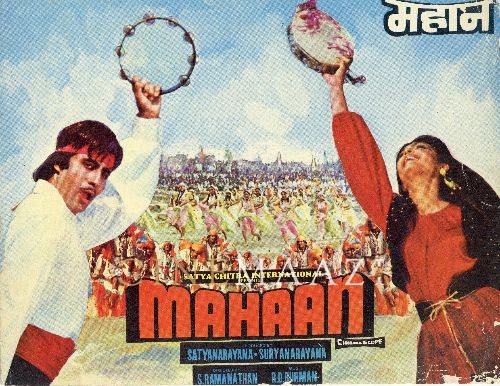
Mahaan 1983
-
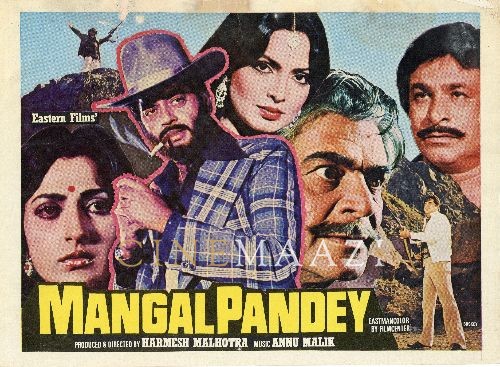
Mangal Pandey 1983
-
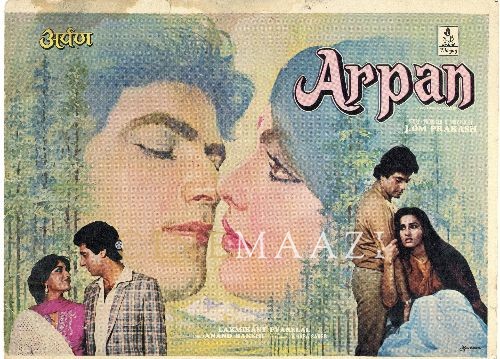
Arpan 1983
-
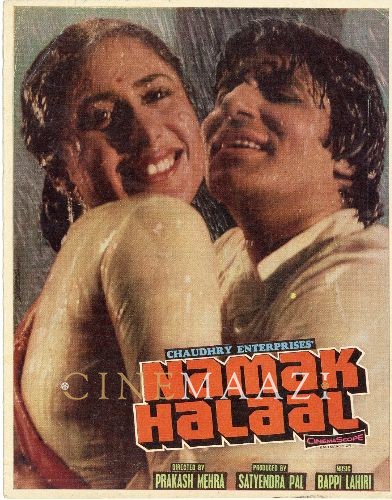
Namak Halaal 1982
-

Yeh Nazdeekiyan 1982
-
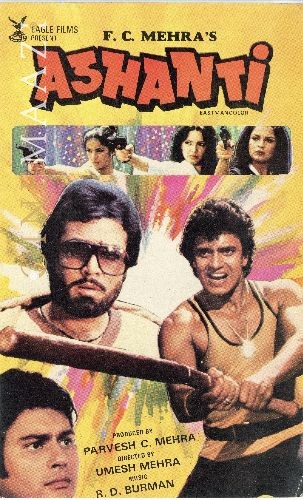
Ashanti 1982
-

Desh Premee 1982
-

Kaalia 1981
-

Khoon Aur Paani 1981
-







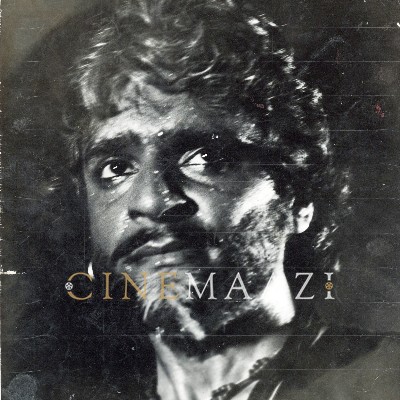



.jpg)



